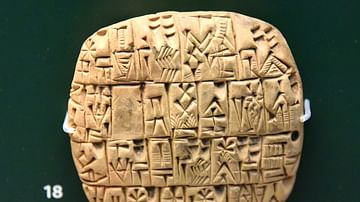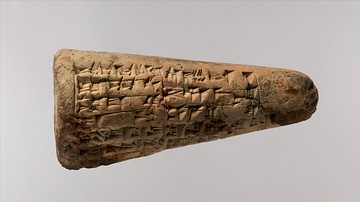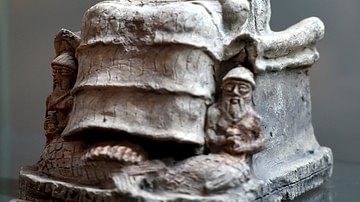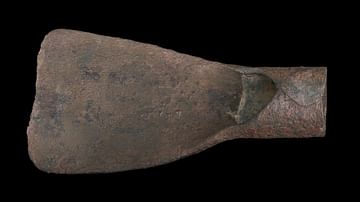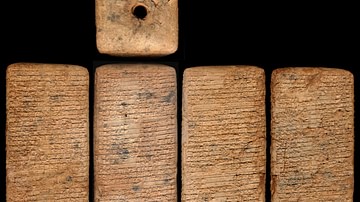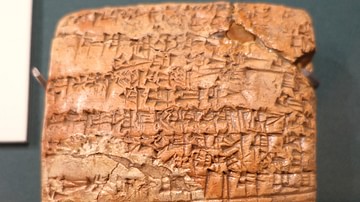Sumerian schools (known as edubba, “House of Tablets”) trained the scribes of ancient Mesopotamia in reading, writing, interpretation of texts, general knowledge, and the specifics of whatever field they would eventually work in. The Sumerian scribal school was operational by c. 2600 BCE and their curriculum continued by the other great civilizations of Mesopotamia that followed.
The curriculum began simply and then progressed to the Tetrad (four compositions), the Decad (ten compositions), and then more complex works to be mastered, through copying and recitation, prior to graduation. This collection includes one piece from the Tetrad, Hymn to Nisaba, nine from the Decad, and two – Schooldays and A Supervisor’s Advice to a Young Scribe – from the more sophisticated texts. Graduates from the edubba would go on to create the literary works Mesopotamia is famous for, including the Epic of Gilgamesh.
